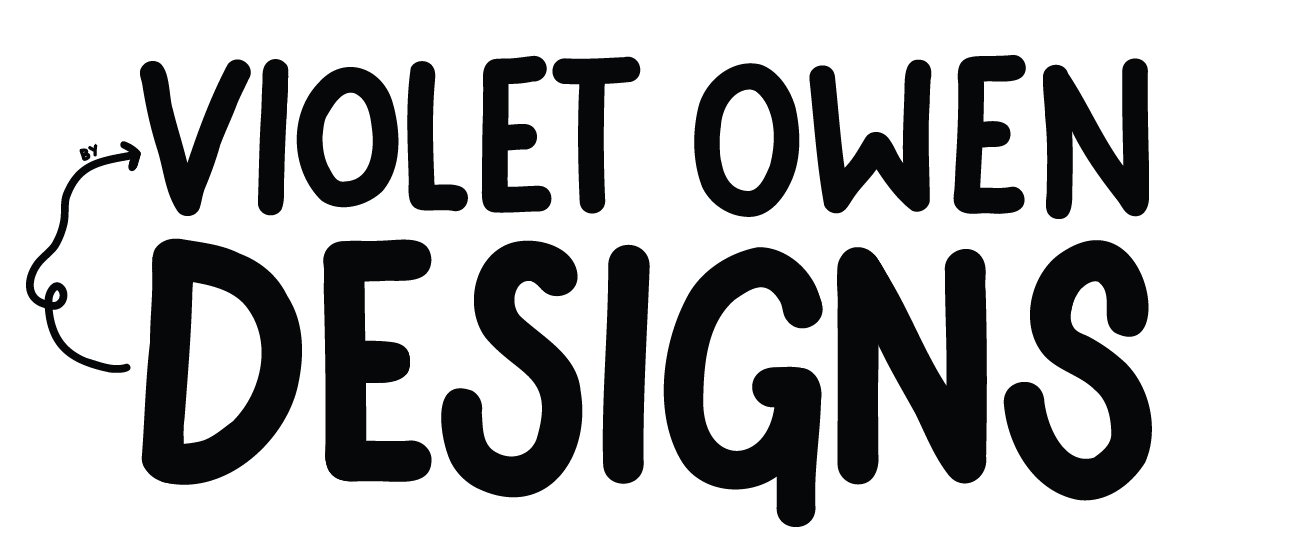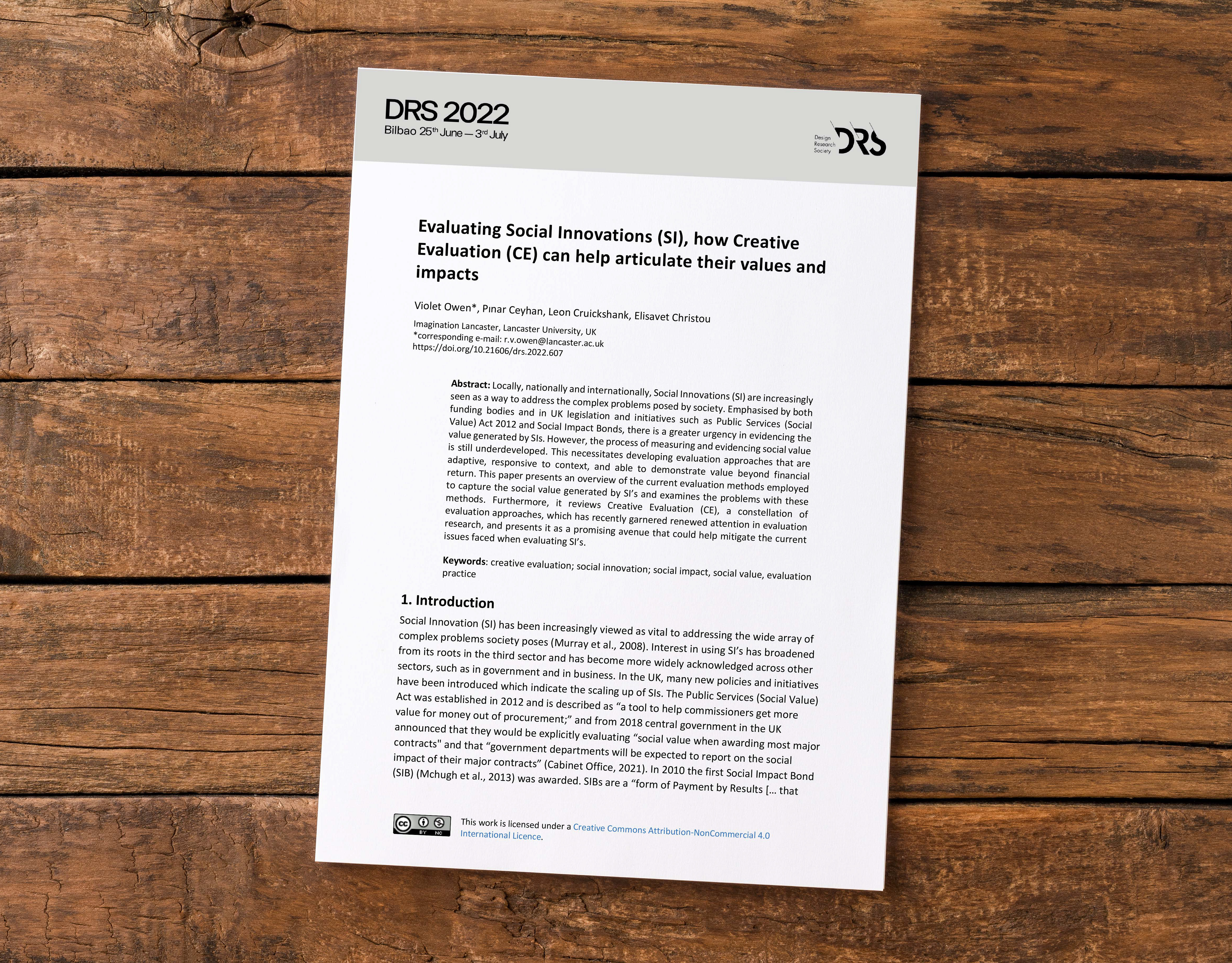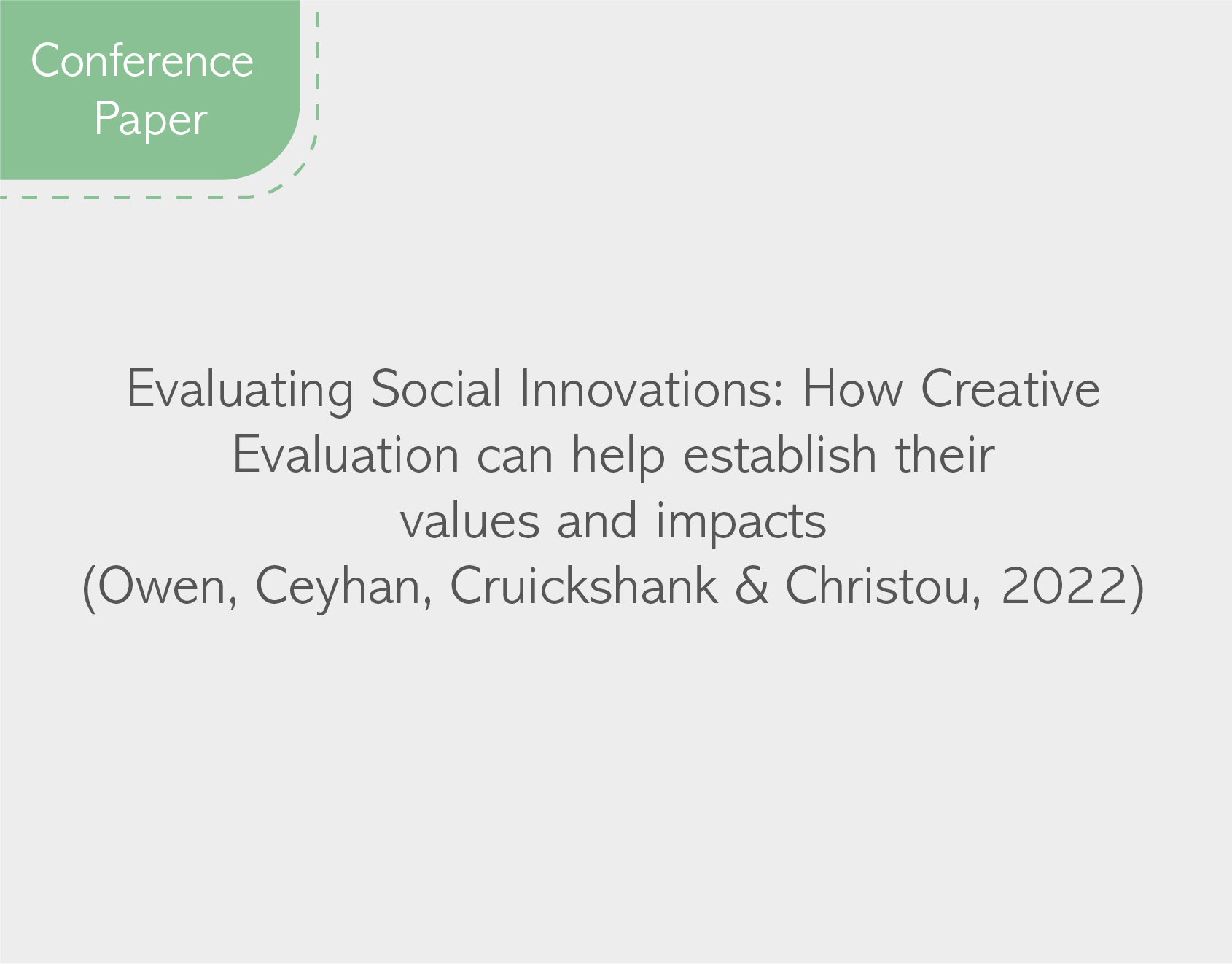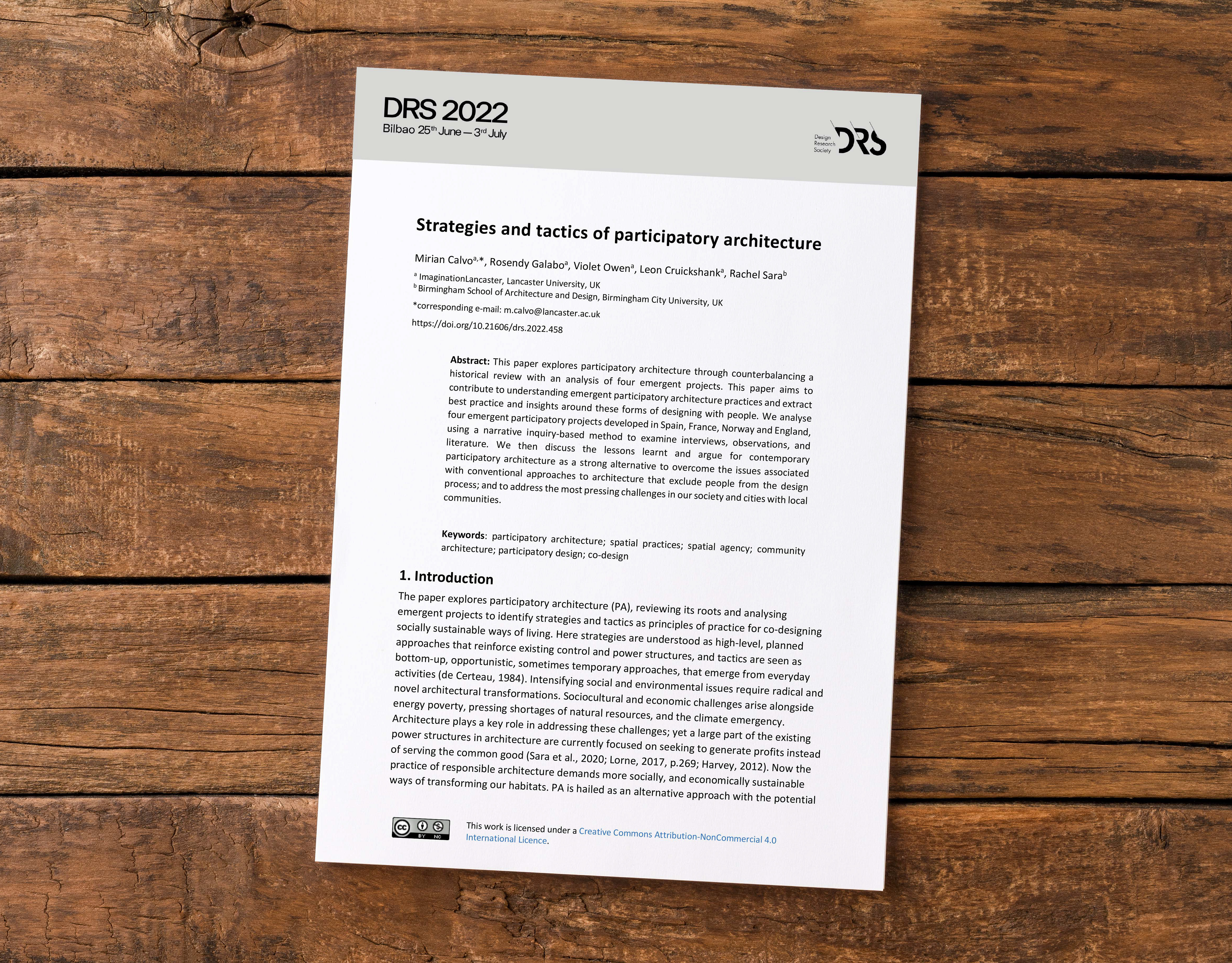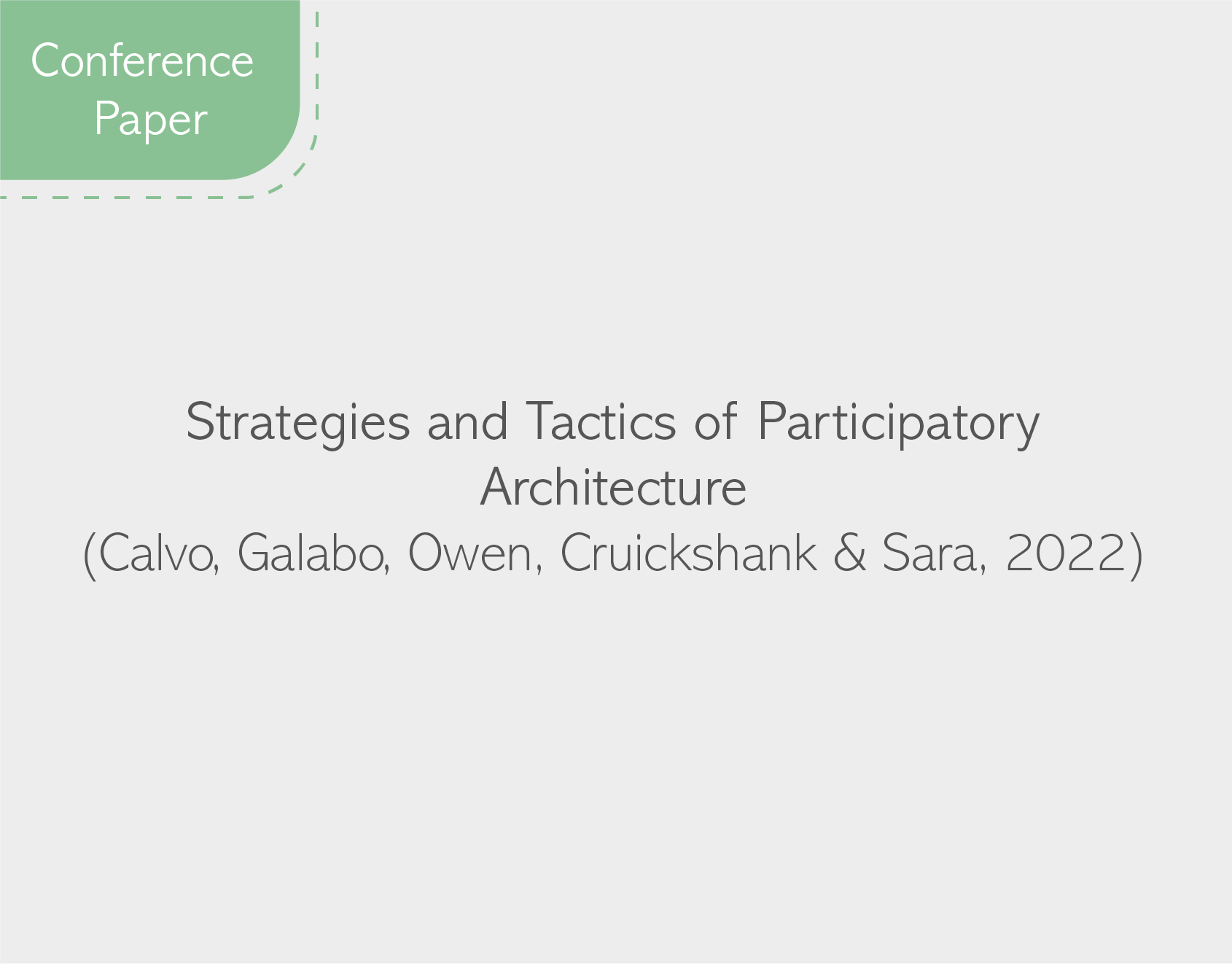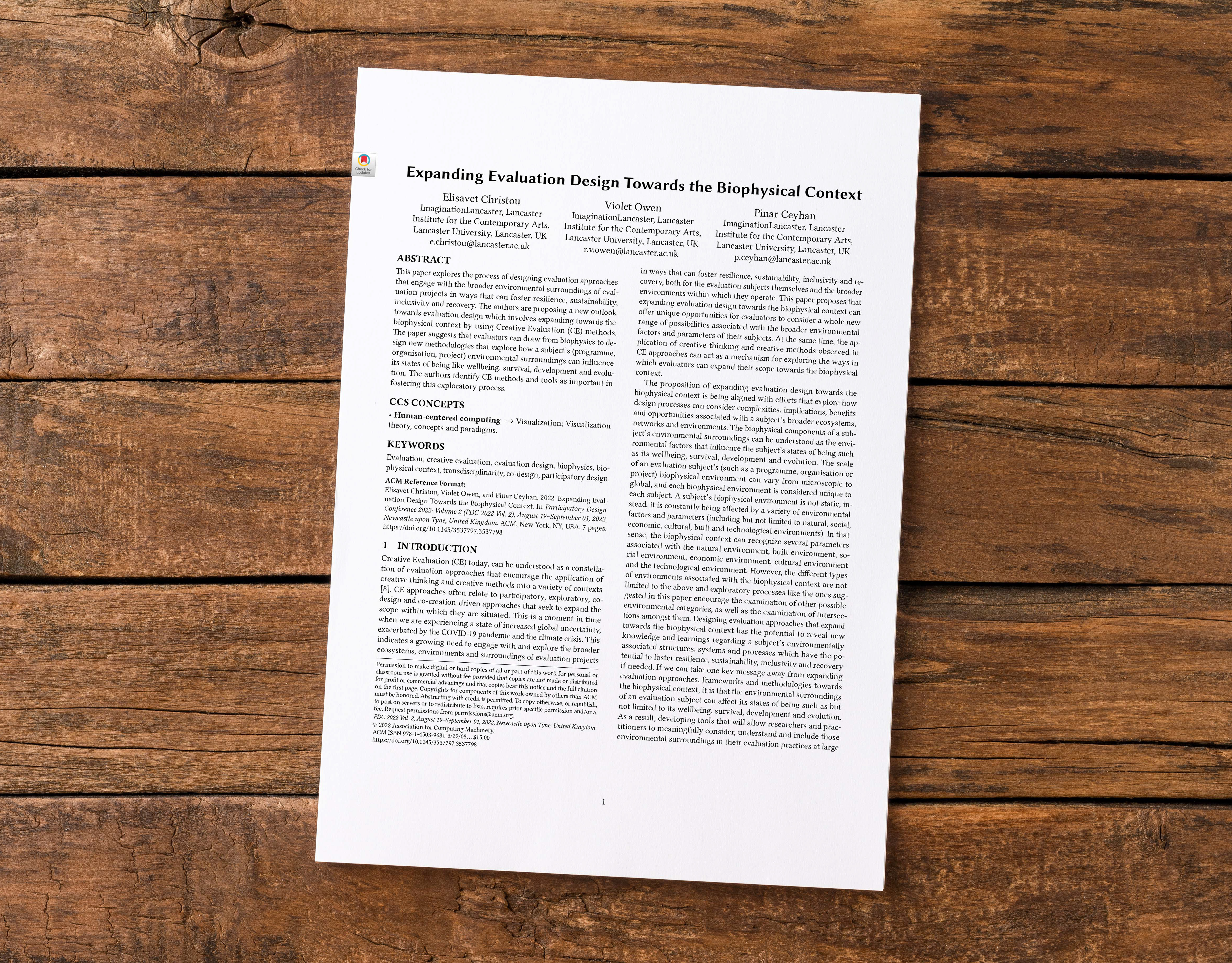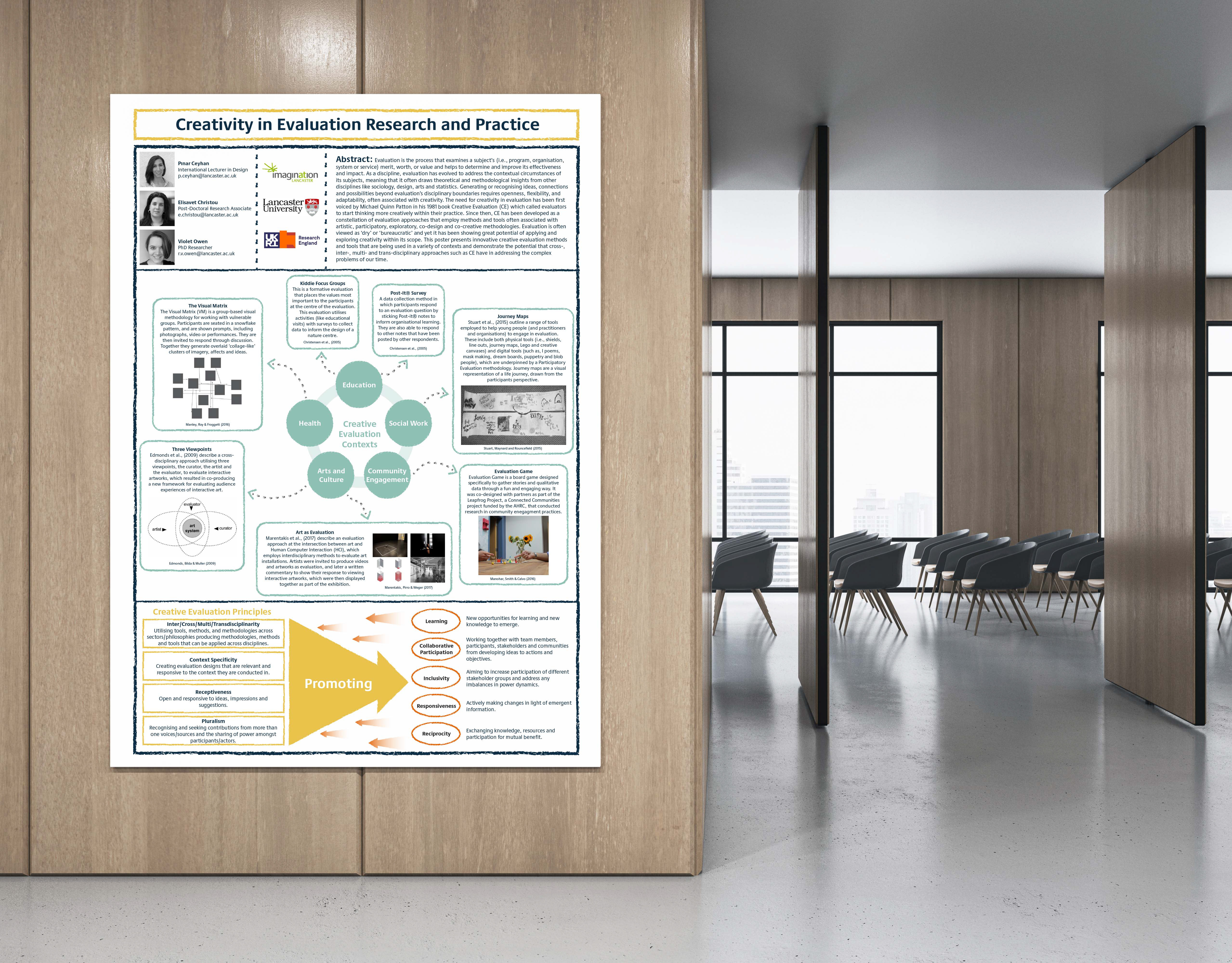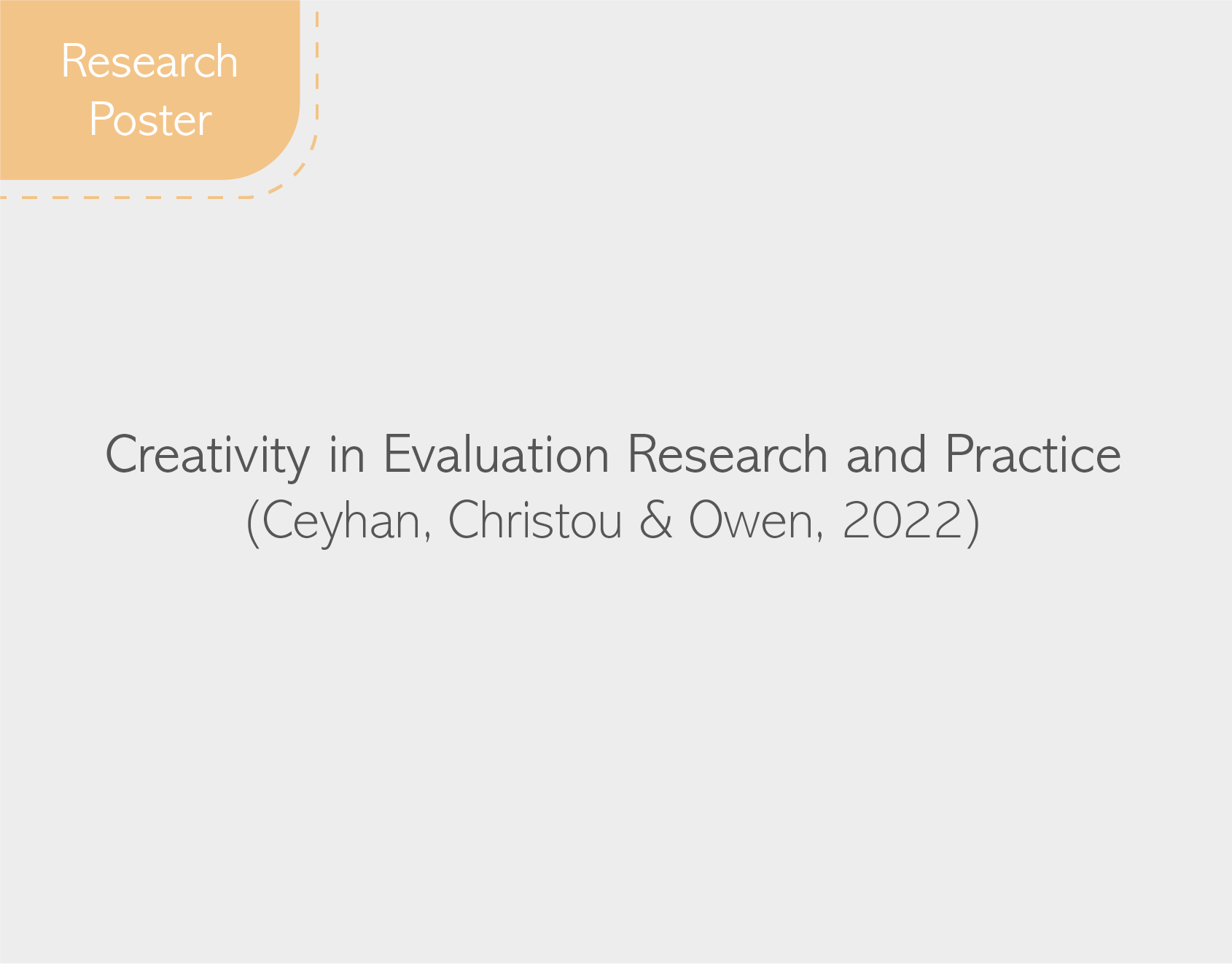Concepts and Contexts of Creative Evaluation Approaches (Christou, E., Owen, V., & Ceyhan, P., 2021). This paper was published in the Journal of Multidisciplinary Evaluation.
Background: Creative Evaluation (CE) is an unformed constellation of evaluation approaches that is based on varied understandings of creativity. Although creativity in evaluation has been consistently valued and needed by evaluation practitioners and researchers, the use of the term CE is currently limited in its applications as it has been developed inconsistently and often in isolation to the broader evaluation practice. The authors review examples where the term CE is being used, to present this constellation of approaches and group them under concepts and contexts, aiming at fostering an exploration into CE.
Purpose: This paper examines the use of term Creative Evaluation by reviewing a set of examples from varied settings like educational programmes, cultural industries and social work and to present the reader with a better understanding about the contexts and concepts associated with CE. The authors discuss the transdisciplinary nature of evaluation along with a review of historical developments in evaluation theory and practice that help identify the emergence of responsive, flexible and problem-solving driven approaches to evaluation that can showcase a growing connection between creativity and evaluation.
Findings: There are different conceptualisations of the term CE applied in a variety of disciplinary and practice contexts. The term CE is used to describe both the process of applying creative thinking and the process of employing creative methods in the evaluation process. Creative thinking indicates a broader application of creativity that shapes the evaluation process and often results in the development of novel methods while creative methods indicate a more targeted use of methods that employ creative practices to achieve a specific evaluation goal like increasing engagement in the evaluation process.
